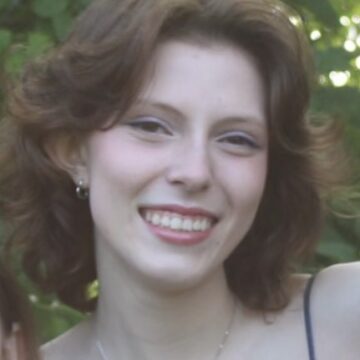
By Kaylee
Goal: 40,000.
I wrote because it made me somebody else—somebody who mattered.
The power of writing, I believed, existed solely in one’s ability to pursue the sublime. So I wrote to create different, better manifestations of my life.
I grew up dreaming and writing (and thinking they were the same) about being a Hermione Granger with Harry as my sidekick battling twenty Voldemorts (twenty!); my stories were dynamic.
I was cool.
Status: 5,000.
My mom once joked that I should audition for the role of Cho Chang. I threw a chopstick at her. Cho Chang was weak, so terribly weak that Harry dumped her.
I knew why she said it though—I rarely existed in books and when I did, I was the Cho Chang, the inconsequential, insignificant Asian girl who could never assert herself.
In a fit of spite, I killed my Hermione, realizing I could never be her.
Status: 1,000.
Somebody once told me to read The Joy Luck Club but I never bothered. A book about a bunch of Cho Changs couldn’t possibly be sublime.
Instead, I buried myself in the books hidden under my bed, away from Mom, about girls in high school who didn’t do anything besides fall in love. So, to improve my own story, I decided to fall in love with the first boy to call me pretty.
I was satisfied.
Status: 8,000.
Living life vicariously was comfortable and easy.
Perhaps that’s why, at fifteen, I paid no mind to my grandpa’s deteriorating health or my dad’s anxiety. Because these were not the kinds of pain I had ever read about, I didn’t find them good enough to write about.
So, I went looking for better inspiration—for more mockeries of love, ways to validate my insecurities, and priorities that shouldn’t have been labeled as such.
It was all so cool that I couldn’t stop writing about it.
Status: 11,000.
During this magnificent, glorious streak of writing, dreaming, and pretending, I learned that 40,000 words make a novel.
I had to do it. Once I get published, everybody would get a taste of my sublimity. Mom and Dad would be so impressed. I’d probably even become famous! Hence, I became fervently obsessed with word count and cared for little else.
Status: 15,000.
But then I turned seventeen and finally began to process what I had experienced years earlier. I had been witness to my grandpa, reduced to flesh and bones (but hardly any flesh), barely clinging to life in a maggot-infested hospital in Dengzhou—something I had forced myself to forget.
Suddenly, I couldn’t keep pretending that crafting a fictitious version of my life on paper could replace what is real.
I erased everything.
Status: 0.
I started over.
I wrote about my real thoughts, my family, the times I was happy, and the times I was not. I wrote about my grandpa.
I showed Dad. I thought he’d be proud.
He was not.
What? You wrote this? Why? What are you trying to prove?
Nothing.
For the first time, nothing. I’m just writing about life.
But you should keep that private. It’s too revealing and distressing. It’s not…
Sublime.
I know.
It’s. Not. Sublime.
I crumbled.
Then came the summer before my senior year. I finally read The Joy Luck Club.
In the entire novel, I didn’t come across a single Cho Chang. What took the place of sublimity, instead, were real people. Mothers and daughters who breathe and hurt and love.
I laughed and cried and began to write.
Status: Not counting anymore.
I don’t write to create the next Hermione, become the best cliché, or impress Mom and Dad. I write to express the thoughts that are most real to me, ones I cannot confine any longer.
I am real and I care about being real—that is my power, not just as a writer but as a person.
Admissions Committee Comments
We were impressed by Kaylee’s ability to creatively relay important information about herself. The unique format of her essay suited the content and also showcased her passion for writing. What the essay did particularly well, though, was effectively explore experiences (both small and large) that shaped her growth as a person and writer. Her conclusion to write for herself, rather than to impress others, demonstrates her maturity and confidence. Through these anecdotes, we got a better idea of the kind of scholar she is outside the classroom—something not found anywhere else in the application.





